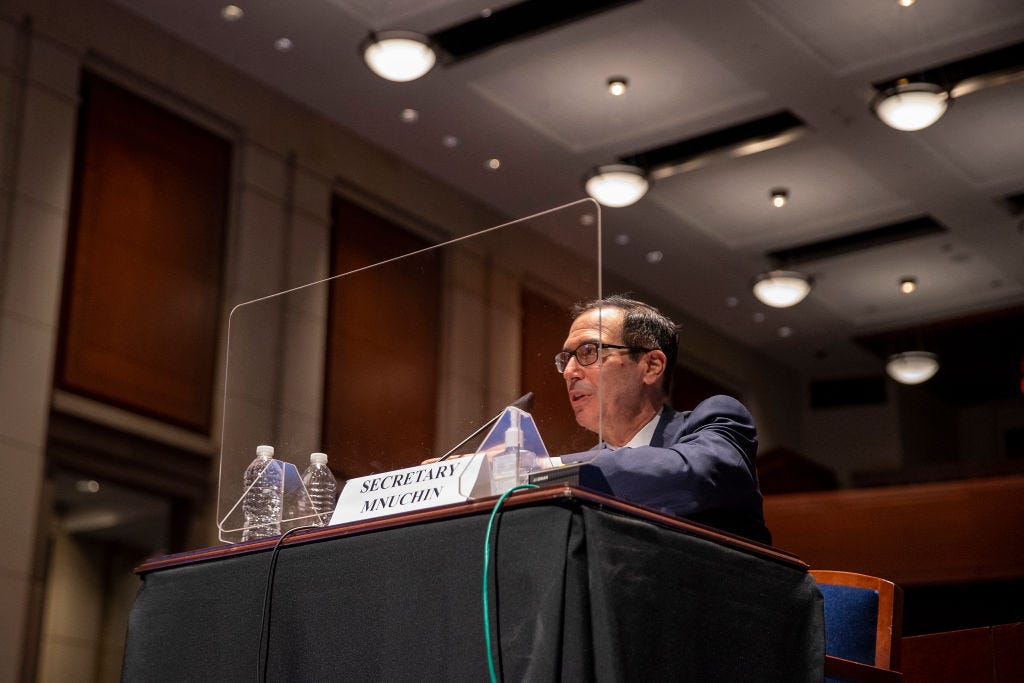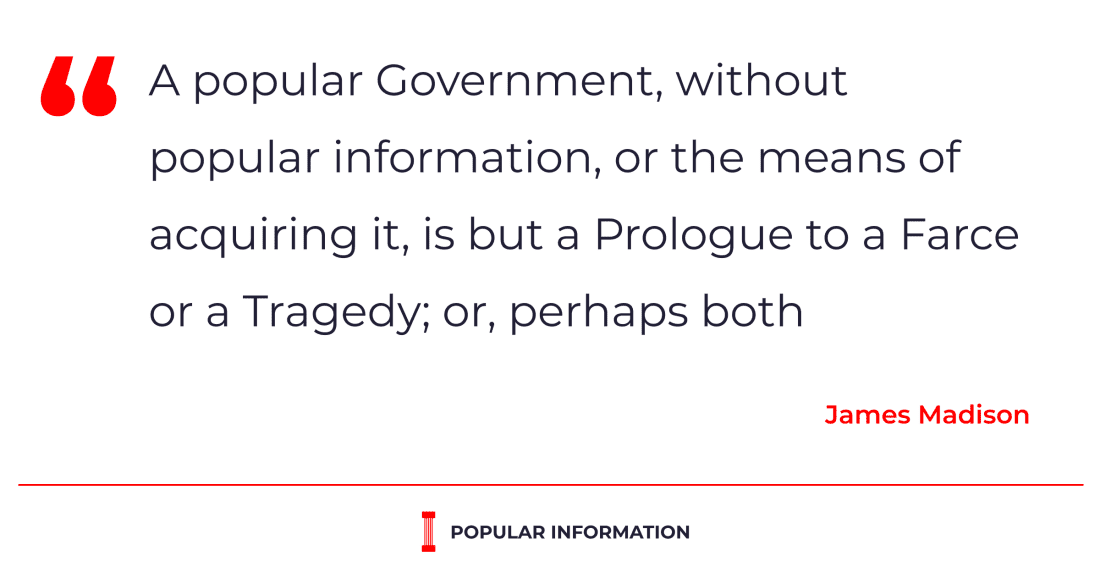 |
U.S. Secretary of the Treasury Steven Mnuchin (Photo by Tasos Katopodis/Getty Images)
The Paycheck Protection Program (PPP) was created to help struggling small businesses survive the pandemic and keep people employed. And, for some struggling small businesses, the $669 billion program helped. But new data released on Thursday revealed that billions of taxpayer dollars also went to companies that didn't need the money.
Previously, the only publicly available data about the loans came from publicly traded companies, which were required to disclose the PPP loans to the SEC, and companies that voluntarily disclosed information.
The Small Business Administration (SBA), which administered the program, had promised information on individual loans would be released. The SBA "intend[s] to post individual loan data in accordance with the information presently on the SBA.gov website after the loan process has been completed," an SBA spokesman told the Washington Post on April 16.
But in June, Treasury Secretary Steven Mnuchin said that the administration would not release the "names and amounts of specific PPP loans" because it is "proprietary information" and "confidential."
A few days later, after intense public criticism, Mnuchin reversed course and announced that the administration would release information about loans over $150,000. That data was released on Monday. It now makes sense why Mnuchin was eager to keep the information under wraps.
Among the recipients of the PPP loans were white-shoe law firms, anti-government activists, and hate groups.
The data doesn't mean the program was totally unsuccessful. But it does show that the program’s design and execution was sloppy. Money was squandered on entities that were not impacted by the pandemic or had alternative sources of funding. Meanwhile, the program left many small businesses in the lurch, including those that "closed during prolonged lockdowns, drew too few customers to afford more than a skeleton staff, or were overwhelmed by high overhead costs, such as rent."
White shoe law firms charge $1000+ per hour, collect millions in PPP loans
Wiley Rein LLP, one of DC’s largest law firms, received a $5-10 million PPP loan. The firm specializes in government contracts, corporate law, and telecom, and represents clients in “complex, high-stakes regulatory, litigation, and transactional matters.” Many of the firm’s attorneys and advisors have “held high-level positions in the White House and federal agencies on Capitol Hill.” It also makes millions annually from lobbying services and currently represents 16 clients, including AT&T and Verizon. The firm does not appear to be hurting for cash. Last month, the firm signed a 166,000-square-foot lease for a new property, which is “the largest D.C. market relocation deal so far in 2020.”
Boutique law firm Zuckerman Spaeder received a $2-5 million PPP loan. According to its site, the firm’s reputation is “built on defending clients in high-stakes white collar litigation.” The Washington Post reported in 2016 that the firm’s average profit-per-partner was “more than $1 million” and charges up to $1,000 per hour. In the past, the firm’s clients have included Fortune 500 companies, executives, and public officials such as the former International Monetary Fund Managing Director Dominique Strauss-Kahn and the former Fannie Mae Chief Financial Officer J. Timothy Howard. Most recently, the firm has been representing CVS in opioid litigation in Ohio.
Boies Schiller Flexner, a New York-based law firm where partners “commonly earn seven-figure compensation,” received a $5-10 million PPP loan. Founded by the famed lawyer David Boies, the firm has been described as a “litigation powerhouse.” Over the past two years, however, roughly 70 lawyers have left the firm amid internal struggles and controversies surrounding Boies’ decisions to take on Harvey Weinstein and Theranos as clients. Last year, the firm drew $405 million in revenue, with shareholders earning “an average of $3 million,” according to the legal publication The American Lawyer.
Anti-government crusaders accept taxpayer bailout
The man who famously said he said he wants to shrink government "to the size where I can drag it into the bathroom and drown it in the bathtub" is now swimming in government cash.
Grover Norquist, founder of Americans for Tax Reform (ATR) and the Americans for Tax Reform Foundation (ATRF), stridently argues against taxpayer-financed bailouts. Norquist recently signed onto a letter arguing that government spending was hindering economic recovery following the pandemic. "Government spending...is inhibiting the fast recovery we want in jobs and incomes, not stimulating it...runaway government spending is the new virus," Norquist and other conservatives wrote.
Meanwhile, ATRF accepted $150,000 to $350,000 from the government as part of the PPP. "[ATRF]...was badly hurt by the government shutdown. It applied for and received a loan and has as a consequence been able to maintain its employees without laying anyone off," the organization said in a statement. The term "government shutdown" is apparently a reference to stay-at-home orders that were imposed to curb the spread of the pandemic. It's unclear why those actions had any impact on the ATRF, which is a non-profit.
The Ayn Rand Institute (ARI), also known as the Center for Advancement of Objectivism, is devoted to the "writings and work of novelist-philosopher Ayn Rand." Specifically, it advocates for "rational self-interest and laissez-faire capitalism." Rand wrote that "the protection of individual rights is the only proper purpose of a government." ARI accepted $150,000 to $350,000 from the government as part of the PPP.
Hate groups capitalize on the coronavirus
The Center for Immigration Studies is designated as a hate group by the Southern Poverty Law Center (SPLC). The organization "has a decades-long history of circulating racist writers, while also associating with white nationalists." It received $350,000 to $1 million from the PPP.
The Federation for American Immigration Reform (FAIR) has also been designated a hate group by the SPLC. The group's leaders have "ties to white supremacist groups and eugenicists and have made many racist statements." FAIR's founder, John Tanton, "expressed his wish that America remain a majority-white population." FAIR received $350,000 to $1 million from the PPP. Immigration Reform Law Institute, which is FAIR's legal arm, received between $100,000 and $350,000.
Thanks for reading!
 |

